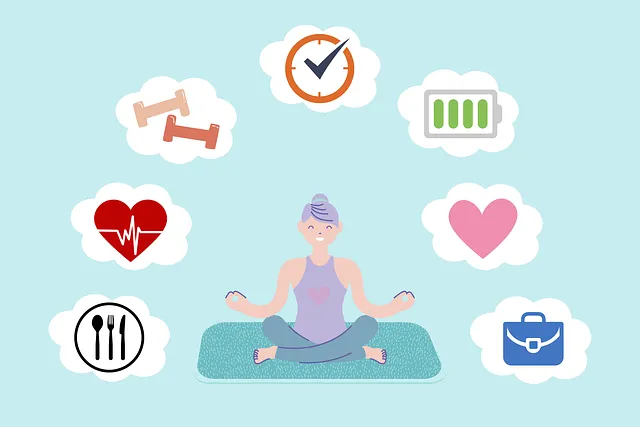The Littleton Kaiser Permanente mental health center emphasizes that cultural competency in healthcare is essential for building trust and improving patient outcomes, as evidenced by its successful training programs. By tailoring services, understanding cultural influences on emotional expression, and addressing social determinants of health, the center ensures providers can better serve diverse patients. Interactive workshops, multimedia training, and peer mentorship programs have yielded positive results, shown through improved care delivery, patient satisfaction, and mental health outcomes, as measured in reviews of the Littleton Kaiser Permanente mental health center.
In today’s diverse healthcare landscape, cultural competency is not just a preference—it’s a necessity. The Littleton Kaiser Permanente Mental Health Center has emerged as a leader in training and education, addressing this critical need. This article explores the importance of cultural competency in modern healthcare practice, with a focus on the center’s initiatives. We delve into identifying barriers faced by providers serving diverse populations, effective strategies to enhance cultural competence, and measuring success through patient outcomes, all while highlighting the Littleton Kaiser Permanente mental health center reviews as a beacon of progressive training programs.
- Understanding Cultural Competency in Healthcare: A Necessity in Modern Practice
- The Role of Littleton Kaiser Permanente Mental Health Center in Training and Education
- Identifying Barriers: Challenges Faced by Providers in Serving Diverse Populations
- Effective Strategies for Enhancing Cultural Competency Among Healthcare Workers
- Measuring Success: Evaluating the Impact of Training Programs on Patient Outcomes
Understanding Cultural Competency in Healthcare: A Necessity in Modern Practice

In today’s diverse society, cultural competency within healthcare is no longer a nice-to-have but an absolute necessity. This concept involves understanding and respecting patients’ backgrounds, beliefs, and values, ensuring that quality care meets individual needs. At institutions like the Littleton Kaiser Permanente mental health center, as reflected in reviews, recognizing these differences is crucial for fostering trust and improving patient outcomes. The ability to navigate cultural nuances can significantly impact a patient’s experience, especially when it comes to sensitive topics like mental health.
For instance, Mental Wellness Journaling Exercise Guidance can be tailored to accommodate diverse writing styles and language preferences. Communication Strategies must evolve to incorporate cultural idioms and non-verbal cues. Moreover, addressing Mood Management involves an understanding of how cultural factors influence emotional expression and coping mechanisms. By integrating these aspects into training programs, healthcare providers can better serve a broad spectrum of patients, ensuring that modern practice aligns with the rich tapestry of our multicultural society.
The Role of Littleton Kaiser Permanente Mental Health Center in Training and Education

The Littleton Kaiser Permanente Mental Health Center plays a pivotal role in advancing cultural competency within healthcare. This center is renowned for its comprehensive training programs aimed at equipping professionals with the skills to provide inclusive and effective care to a diverse range of patients. By fostering an environment that promotes understanding and empathy, the center helps healthcare providers navigate complex cultural nuances, ensuring every patient receives personalized attention tailored to their unique needs.
Through interactive workshops and educational sessions, the Littleton Kaiser Permanente Mental Health Center addresses various topics, including cross-cultural communication, unconscious biases, and the impact of social determinants on mental health. These initiatives not only enhance the abilities of healthcare workers but also contribute to improved patient outcomes. The center’s commitment to education extends beyond its walls, as it offers resources and insights that resonate with professionals across different healthcare settings, ultimately leading to better support for individuals seeking anxiety relief, confidence boosting, and depression prevention.
Identifying Barriers: Challenges Faced by Providers in Serving Diverse Populations

Healthcare providers often face significant challenges when serving diverse populations, with cultural barriers hindering effective patient care. These obstacles can stem from language differences, where communication breakdowns may lead to misdiagnoses or improper treatment. For instance, a study by the Littleton Kaiser Permanente mental health center reviews highlights how language barriers impact the quality of care, particularly in nuanced areas like mental health. Patients and providers from different cultural backgrounds may have varying understandings of symptoms, treatments, and self-care practices, creating a need for culturally sensitive approaches.
Moreover, cultural competency training should address social determinants of health, such as poverty, discrimination, and limited access to resources, which can affect patients’ overall well-being. Building resilience and empathy among healthcare providers is crucial. Effective strategies include encouraging self-care practices among providers, fostering open discussions about cultural differences, and implementing educational programs that promote understanding of diverse communities and their unique needs.
Effective Strategies for Enhancing Cultural Competency Among Healthcare Workers

Cultural competency is a cornerstone for providing quality healthcare that respects and understands diverse patient backgrounds. To enhance this among healthcare workers, institutions like the Littleton Kaiser Permanente mental health center reviews can implement effective strategies. One powerful approach is through educational workshops that cover cultural differences, historical contexts, and unconscious biases. These sessions should be interactive, encouraging open dialogue and personal reflections to foster a deeper understanding.
Additionally, integrating Mental Wellness Podcast Series Production into training curriculums offers an engaging way to explore topics related to mental health and diverse communities. This multimedia format allows for discussions on Stress Management and Mental Wellness, making complex issues more accessible and relatable. Regular feedback sessions and peer mentorship programs can further reinforce learning, creating a supportive environment where healthcare workers feel empowered to navigate cultural nuances with confidence.
Measuring Success: Evaluating the Impact of Training Programs on Patient Outcomes

Evaluating the impact of healthcare provider cultural competency training is a crucial step in ensuring its success and effectiveness. Measuring improvements in patient outcomes can provide invaluable insights into the program’s reach and influence. At the Littleton Kaiser Permanente mental health center, reviews highlight significant advancements in care delivery after implementing comprehensive training initiatives. Staff reports increased satisfaction rates among patients, attributing this to improved communication and tailored treatment approaches.
The success of these programs is often reflected in enhanced patient outcomes, such as reduced wait times, higher adherence to treatment plans, and improved mental health awareness. For instance, the integration of mindfulness meditation and self-awareness exercises has been shown to benefit participants, leading to better management of stress and anxiety. These evaluations ensure that cultural competency training remains a dynamic process, continually adapted and refined based on measurable data, ultimately benefiting both healthcare providers and patients alike.
Cultural competency training is no longer a nice-to-have, but an essential aspect of modern healthcare. As highlighted by the successful initiatives at the Littleton Kaiser Permanente Mental Health Center, comprehensive education programs can significantly improve patient outcomes and bridge the gap between diverse populations and healthcare services. By addressing barriers and implementing effective strategies, healthcare providers can enhance their ability to deliver culturally sensitive care, ensuring that every patient receives respectful, equitable, and high-quality treatment. As we look to the future, continuous evaluation and refinement of these training programs, such as those measured by successful outcomes at Littleton Kaiser Permanente mental health center reviews, will be crucial in advancing healthcare equity for all.






